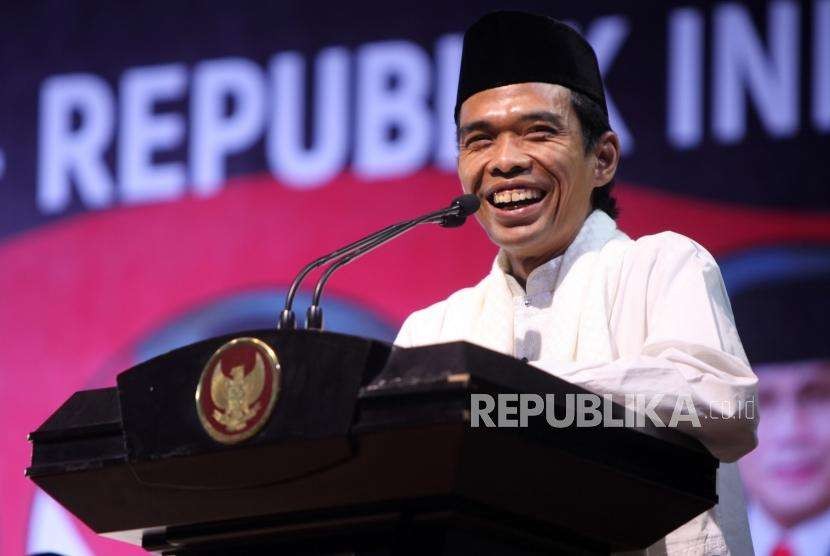REPUBLIKA.CO.ID, JAKARTA -- The Executive Board of Nahdlatul Ulama (PBNU) believed incidents of rejection to the lecture of ustaz Abdul Somad had nothing to do with his personality. It was caused by the background of organizing commitee, which related to a mass organization that has been dissolved by the government.
"It don't think it's a threat. I've searched information about the organizer and it has relation to the element of an organization that has been dissolved by the government," deputy secretary general PBNU, Masduki Baidlowi said to Republika.co.id, on Monday (Sept 3).
Masduki asserted the rejection against ustaz Somad also not related to presidential election. According to him, the rejection was more about the problem of ideological politics, related to the discourse of Unitary Republic of Indonesia (NKRI), nationality, and dealing with mass organization that has been dissolved by the government.
“I want to emphasise that ustaz Somad is our brother and he is also a nahdliyin (NU follower),” Masduki added.
Earlier, ustaz Somad decided to cancel some of his lectures in Central Java, East Java, and Special Administrative Region of Yogyakarta. Through his Instagram account @ustadzabdulsomad, the prominent preacher admitted that the step was taken as a response to threat and intimidation against his lectures in some regions, namely Grobogan, Kudus, Jepara dan Semarang
Ustaz Somad said burden faced by the organizing committee was getting heavier. He cancelled the schedule to give lectures in some regions after paying attention to psychological condition of the congregation and himself.
"Therefore, I cancel promises to preach in Malang, Solo, Boyolali, Jombang, and Kediri (September); Yogyakarta (Oktober); and an agreement to give lecture along with ustad Zulfikar in East Java (December),” the Baznas' Tithe Ambassador explained.
Ustaz Somad deplored various incidents of rejection that he experienced. "We are not at a war against Israel. It was just a lecture," the alumni of post-graduate education at the Dar al-Hadith al-Hasaniyyah Institute, Morocco, said.


